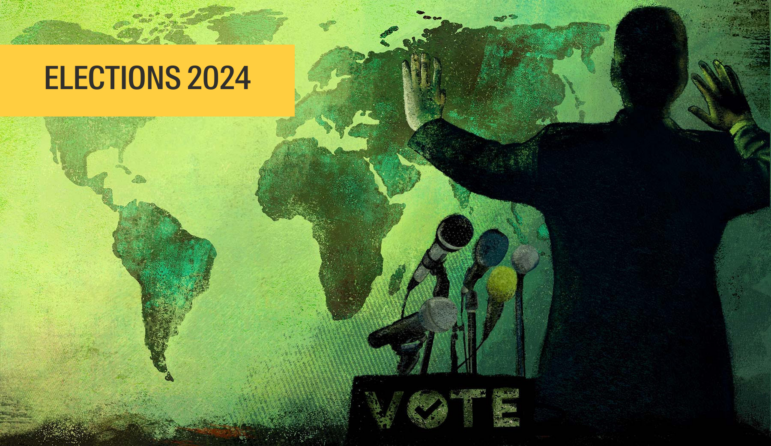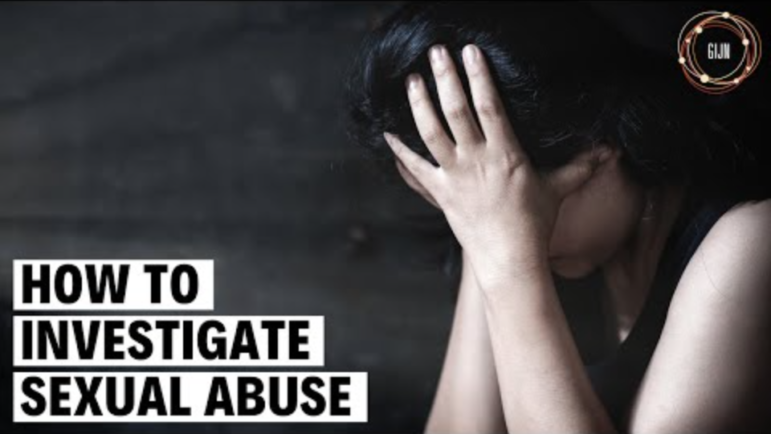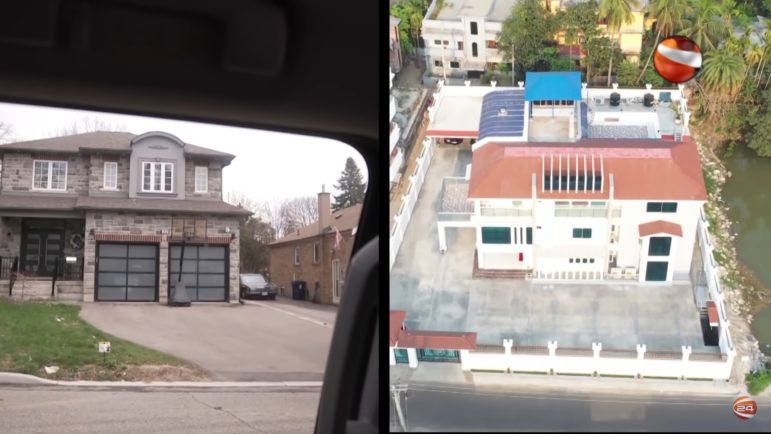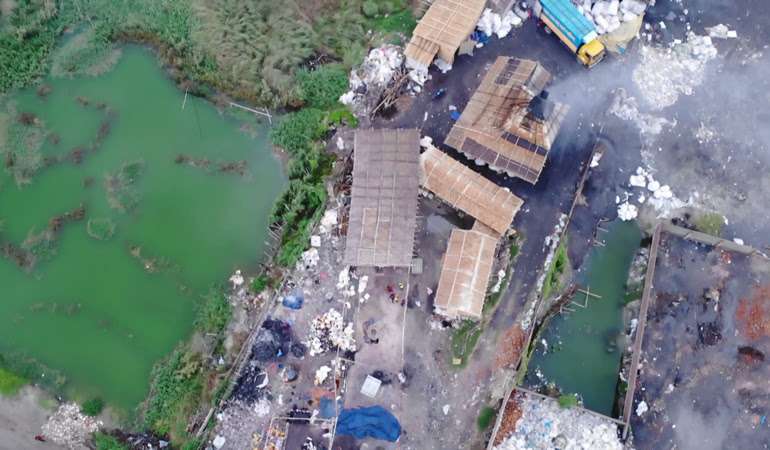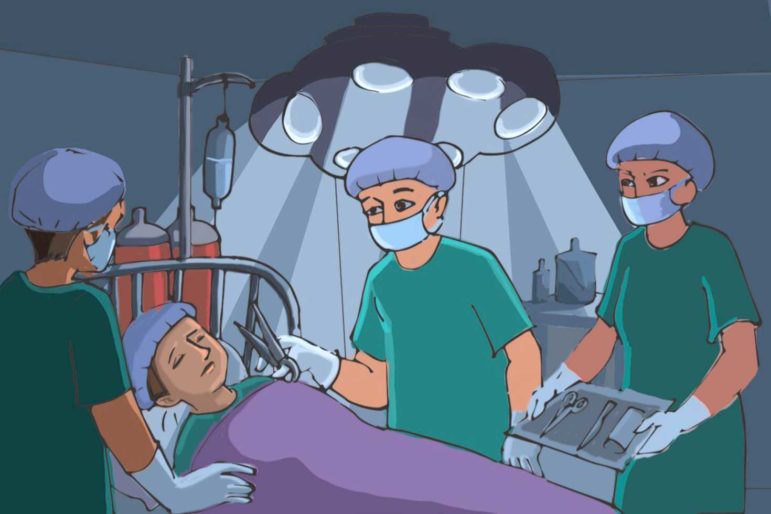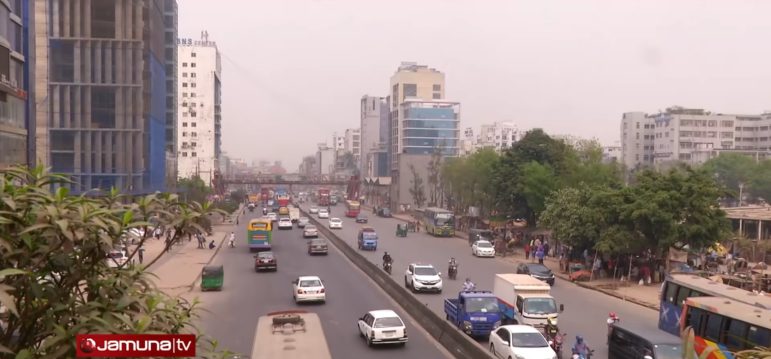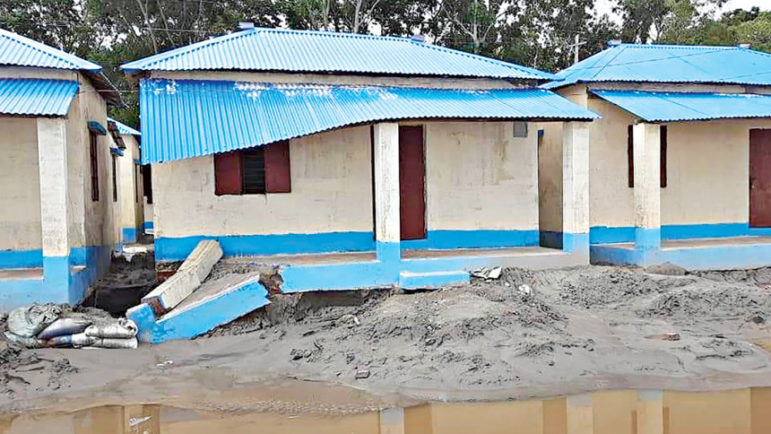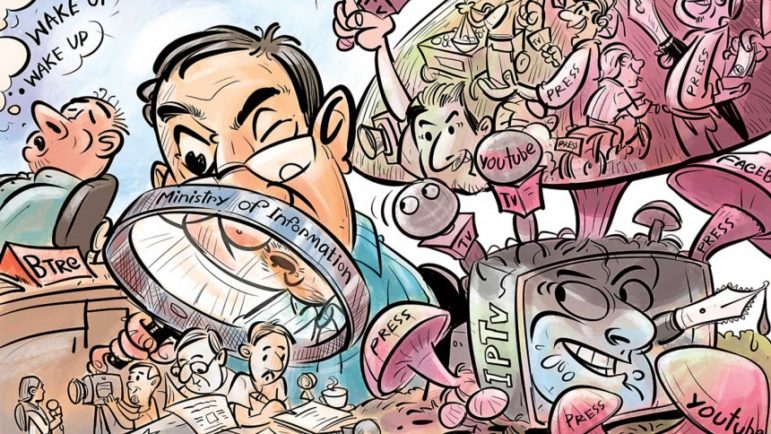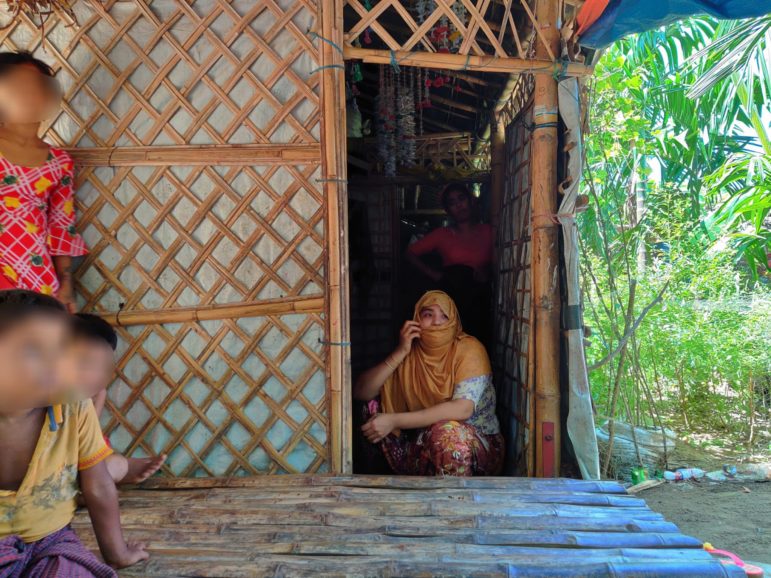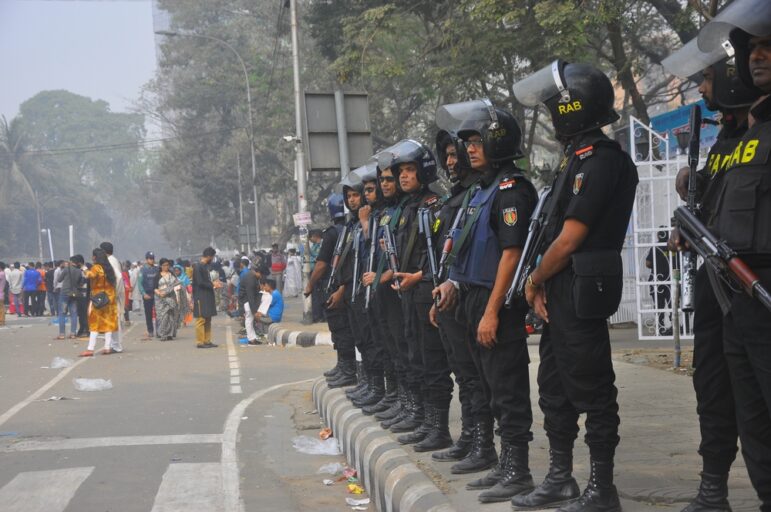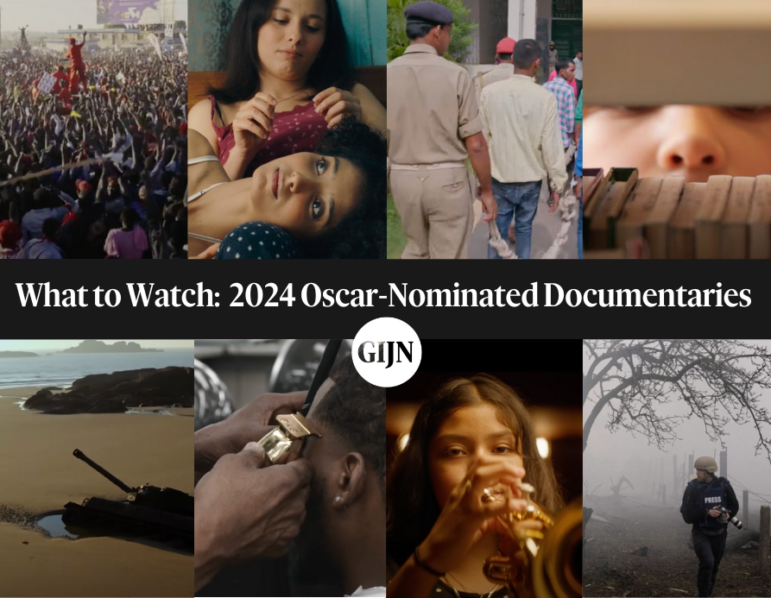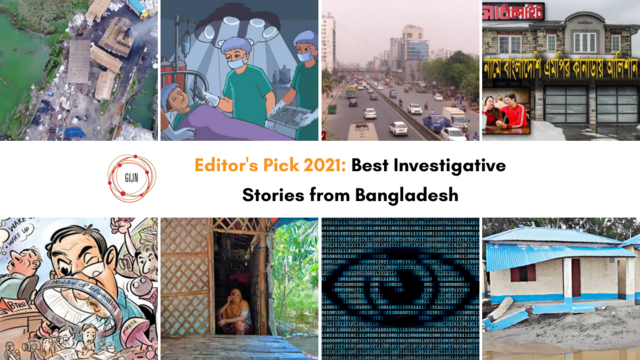

Editor’s Pick: 2021’s Best Investigative Stories from Bangladesh
Read this article in
If Bangladeshi journalists had hoped for an improvement in the country’s media landscape, it didn’t arrive in 2021. Reporters were arrested in the course of doing their work (the most notorious case being that of Rozina Islam), the country’s repressive Digital Security Act continued to put a dampener on media freedom, and on top of that, the pandemic seriously impacted journalists, both in terms of health and job security.
At least 68 journalists have died in the country from COVID-19, according to the Swiss-based Press Emblem campaign, making it one of the worst-affected nations. Bangladesh also slipped one notch to 152 out of 180 in the latest World Press Freedom Index from Reporters Without Borders. In its summation, the group noted with alarm that “reporters who investigate corruption or local criminal gangs are liable to be subjected to extremely barbaric violence that ranges from torture to death.” Any assessment of the merits of investigative journalism in Bangladesh should also consider the media ownership patterns in the country, growing threats against journalists, and high levels of self-censorship.
But despite these challenges, over the last 12 months, investigative journalists uncovered cases of corruption, abuse of power, money laundering, and institutional negligence. The biggest topic last year, as in previous years, was corruption. But in picking the top stories of 2021 we also considered significance and novelty, the diversity of issues covered, impact, and a focus on the vulnerable and marginalized sectors of society as much as the depth and techniques used in any investigation. – Miraj Ahmed Chowdhury, GIJN Bangla Editor
Safe Home in Canada
The overseas affairs and property portfolios of corrupt politicians and businesspeople – and the associated lives of luxury enjoyed by their families – have long made for fertile investigative territory in Bangladesh. This particular exposé, by Searchlight, Channel 24’s investigative unit, claims that the wife of a Bangladeshi lawmaker bought a million-dollar property in Canada and that he spent much of the pandemic there, leaving his electoral constituency behind. The story digs into the politician’s personal journey, from a modest, lower-middle-class background to the top of the political echelons in a small Bangladeshi town, asking probing questions about where he acquired his wealth. Searchlight analyzed property records, wealth statements, bank transactions, and social media footage to pull together the piece, and used hidden cameras to explore another palace-like residence the lawmaker built in his hometown. The investigation received a tremendous response in Bangladesh. The video has been viewed more than 1.7 million times on YouTube alone, and a court has ordered the anti-corruption commission to investigate. The lawmaker in question has denied the charges and remains in his position. CTV Canada’s investigative unit, W5, assisted the Searchlight team in this investigation.
Abuse of Cybersecurity Laws
Bangladesh’s Digital Security Act poses a constant and real threat to press freedom, with “negative propaganda” punishable by up to 14 years in prison. Over a two-year period, reporters from the respected Daily Prothom Alo newspaper collected more than 2,600 case records filed in the Dhaka Cyber Tribunal (including cases lodged under the DSA and its forerunner the ICT Act). Their deep dive found 768 resolved cases, with the figures revealing that the accused were either acquitted or the allegations against them were too weak to prove in 97% of the cases.
These findings revealed how strict cybersecurity laws are often misused to harass ordinary people, and the series also explored the financial, psychological, and physical suffering that the accused suffered during sometimes-lengthy judicial processes. The other two parts of the series touch on the patterns and geographical trends of the cases lodged with the court, revealing that most are related to allegations of defamation or spreading fake news or pornographic pictures. It is worth mentioning that the Center for Governance Studies, a non-governmental organization, has analyzed 668 cases filed under the DSA since January 2020, to find that more than 20% of the targets are journalists.
Breathing Lead
This Ekattor Television investigation revealed how toxic run-off from dozens of battery recycling factories near the Bangladeshi capital had devastating environmental and health implications for neighboring communities. These factories – built without approval or official oversight – were extracting heavy metal from lead-acid batteries. According to the report, lead levels in the blood of local children climbed to between five to 19 times above the government’s safety reference level. Meanwhile, furnace fumes and toxic lead emissions also posed a serious health risk to the residents, especially mothers and newborns.
The five-part series used drone images to provide visual evidence of the adverse effects of toxic lead on the environment, while the reporter also confronted a factory owner and exposed how the batteries are burned in secret at night. This investigation pointed to the illicit trade in cheap recycled batteries and investment from Chinese nationals for the growth in these underground facilities, and the knock-on impact of their toxic byproducts. After the series was published, the authorities demolished 16 illegal lead processing factories, but the Ekattor report estimates that there are at least 500 such factories in Bangladesh.
Diagnosing Profits Over Health
In 2020, freelance reporter Jesmin Papri spent four months on the southeast coast of Bangladesh to reveal how water salinity impacted the health of thousands of women. Last year, she went back to the same coastal communities to investigate a rogue health system that feeds on the vulnerability of these same women.
This time, Papri interviewed 75 women of different ages who opted for surgery to remove their uteruses after suffering from infection and disease linked to the salinity of the water. Many of these women, she found, were opting for a hysterectomy – an expensive and radical procedure in which the entire uterus is removed, even though in a number of the cases, they did not receive the correct medical examinations before the surgery. According to the investigation – which based its findings on medical examination reports, case histories, and expert case reviews – this feeds a business of health clinics growing without supervision, and fills the pockets of the hospital owners, surgeons, and village doctors who prescribe the more expensive surgery instead of considering other options.
Highway for Sale
Perhaps you have heard of Victor Lustig, the conman who sold the Eiffel Tower. On a much lesser scale, but with a similar plethora of plot twists, is the story of a public highway in the middle of the Bangladeshi capital, Dhaka. When it was “sold” recently, a buyer took out a mortgage of nearly $1.8 million. The bank issued the loan without verification and later, in a desperate move to recover the funds, put another piece of adjacent land up for auction. The battle has been going through the courts for a couple of years, but the scam was brought to light by the investigative team of Jamuna Television.
Using land records dating back 50 years, and trawling through official state paperwork, the reporter behind the story claimed to have found evidence that at least three government departments were involved in the scam. Investigations 360 Degree, Jamuna TV’s investigative unit, tracked the buyer, the seller, a local political leader, and the officials who were said to be involved.
Built to Crumble
The Ashrayan-2 project had good intentions: to provide permanent housing for the homeless and landless families of Bangladesh. But within a year, many of the two-bedroom houses developed cracks, and some even collapsed. Since the project was funded by the Prime Minister’s Office and implemented by the local administration, the poor state of repair of the houses in the project sparked controversy across the country.
The Daily Star, a popular English-language newspaper, spoke to contractors, officials, engineers, workers, and victims before concluding: the shoddily-constructed houses were built to crumble. From the project budget (grossly inadequate) to the timeline (overly ambitious) to design flaws (the sites selected were low-lying), the project was beset with problems. In at least one district, workers alerted the authorities that houses may collapse but were told to carry on regardless.
In response to the public criticism, the Prime Minister’s Office investigated and concluded that of more than 120,000 houses built, only a few developed cracks due to heavy rainfall, corruption was minimal, and most of the damage reported by the press was caused by vandals. These claims were criticized by the opposition party as the state backing corruption.
Media Run Amok
While the growth of the internet has led to a mushrooming in the number of media outlets in Bangladesh – from news portals to social media-based channels – they aren’t all legitimate, and haven’t all been a force for good. In these investigations, three leading newsrooms independently scrutinized several rogue media organizations and how they operate. A Maasranga TV investigation revealed how some so-called online news portals and newspapers have used extortion and fraud to enrich themselves. It shows a businessman running a newspaper, a news site, and a news channel from a small business office, allowing unappointed reporters to use identity cards to exploit people, and another outlet extorting small businesses by threatening to publish derogatory reports.
Two other investigations by Jamuna TV and The Daily Star exposed internet television outlets (IPTV’s) not paying reporters salaries, with journalists instead taking a cut from sponsored content. One outlet was even found to blackmail women and businessmen by threatening to publish intimate photographs.
Victims of a Dream
In 2018, about 1,600 Rohingya people fleeing violence in Myanmar were trafficked from Bangladesh. The following year, the figure grew 10-fold. According to this investigation by The Third Pole, a multilingual platform focused on the region’s waterways, a large number of those trafficked are women and children, and this investigation sheds light on how hundreds die or risk their lives in an attempt to cross the Bay of Bengal to reach Malaysia. This report analyzed data, mapped the routes, and interviewed victims, traffickers, and the authorities. What makes this story unique is how it captures the victims’ dreams and desperation for a better life, while simultaneously revealing how traffickers and organized crime exploit these hopes. There have been many reports in Bangladeshi media on Rohingya human trafficking in the last few years, focusing mainly on the nature of the crime and the perpetrators. This story answers the more fundamental question: why anyone would try to migrate knowing that it might cost them their lives.
Additional Resources
Reporter’s Guide to Investigating Organized Crime: Human Trafficking
How They Did It: Making a Story Too Big to Ignore by Using Surveys
Editor’s Pick: 2020’s Best Investigative Stories from Bangladesh
 Miraj Ahmed Chowdhury is the editor of GIJN in Bangla. He also oversees programs and communications at the Management and Resources Development Institute (MRDI), a leading media development organization and GIJN member in Bangladesh. He has 14 years of experience in journalism, mainly in broadcast.
Miraj Ahmed Chowdhury is the editor of GIJN in Bangla. He also oversees programs and communications at the Management and Resources Development Institute (MRDI), a leading media development organization and GIJN member in Bangladesh. He has 14 years of experience in journalism, mainly in broadcast.

